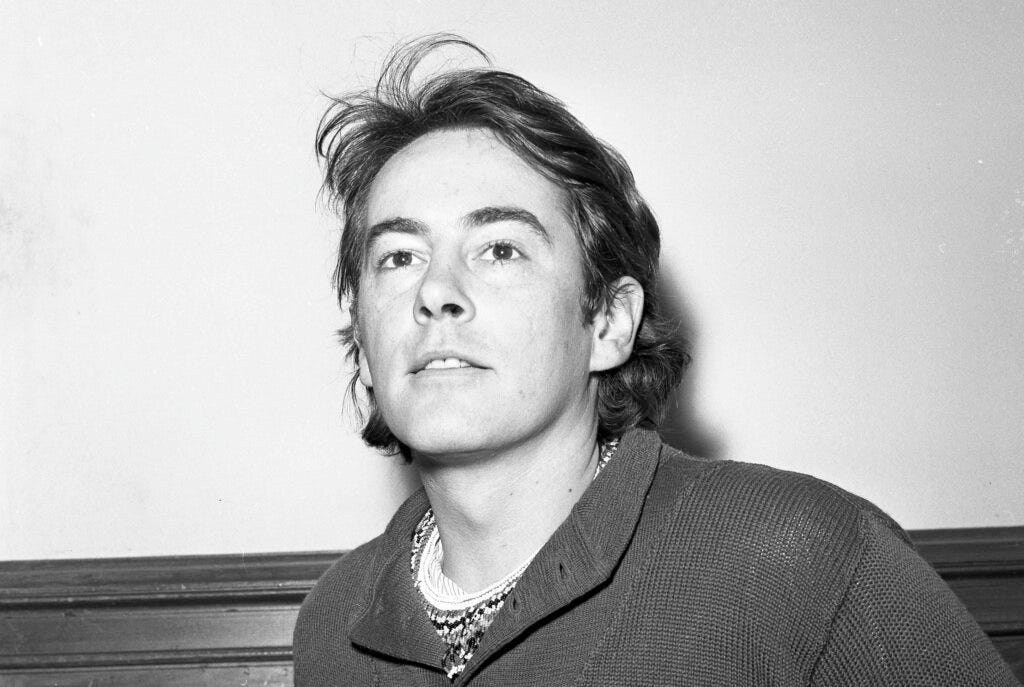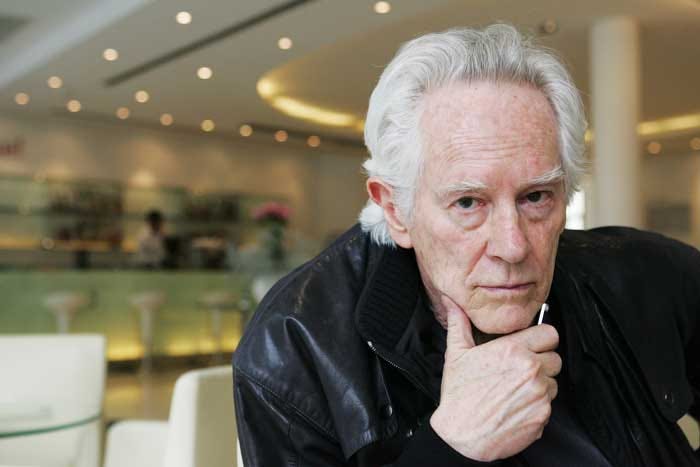Michael McClure
Michael McClure (1932-2020) was an American poet, playwright, songwriter, and a key figure in the Beat Generation and the San Francisco Renaissance.
His work is noted for its exploration of the natural world, consciousness, and the body, employing vivid imagery and experimental forms that broke from traditional literary conventions. McClure's poetry and plays often reflect his interest in environmentalism, Eastern philosophy, and the countercultural movements of the 1960s and 70s.
Early Life and Education
Michael McClure was born on October 20, 1932, in Marysville, Kansas. He grew up in Seattle, Washington, and later attended the University of Wichita in Kansas, before moving to San Francisco in 1954. This relocation marked the beginning of his lifelong engagement with the city's vibrant literary community and his development as a poet and playwright.
Literary Career
McClure's literary career was launched at the legendary Six Gallery reading on October 7, 1955, in San Francisco, where he read alongside Allen Ginsberg, whose first public reading of "Howl" occurred that same night. This event is often cited as the birth of the Beat Generation, and McClure emerged as one of its most innovative and distinctive voices.
His first book of poetry, "Passage," was published in 1956. Over the decades, McClure produced numerous collections of poetry, including "Ghost Tantras" (1964), known for its "beast language" poems, which attempted to transcend the limits of conventional language and meaning. His work in the 1960s and beyond often explored themes of nature, consciousness, and the human spirit, drawing on his interests in ecological movements and Eastern philosophies, particularly Zen Buddhism.
Contribution to Theatre and Music
McClure also made significant contributions to the theater, writing plays that extended his poetic innovations into dramatic form. His play "The Beard" (1965) is perhaps his most famous work, winning several awards and stirring controversy for its explicit content and portrayal of sexual and societal themes.
In addition to his literary and dramatic works, McClure had connections to the music world. He collaborated with the Doors, particularly with lead singer Jim Morrison, whom he influenced and worked with on several projects. McClure's intersection with rock music and his poetic recitations accompanied by music helped bridge the gap between the Beat Generation and the psychedelic movements of the 1960s and 70s.
Later Life and Legacy
Throughout his life, McClure remained active in the literary and environmental communities, continuing to publish poetry, give readings, and participate in protests and advocacy for ecological and animal rights causes. His work reflects a deep engagement with the world, combining a mystic's quest for transcendence with a pragmatist's attention to the physical and temporal.
Michael McClure passed away on May 4, 2020. His legacy is that of a poet who sought to expand the boundaries of consciousness and express the interconnectedness of all living things. Through his poetry, plays, and collaborations, McClure explored the potential of language and art to transform the self and society, embodying the spirit of exploration and rebellion that defined the Beat Generation and influencing subsequent generations of poets and artists.

